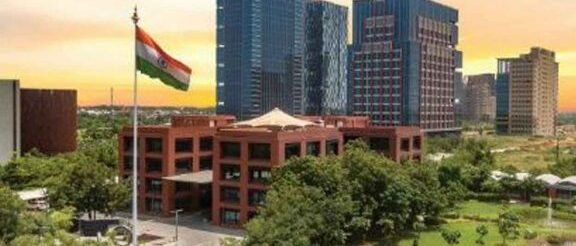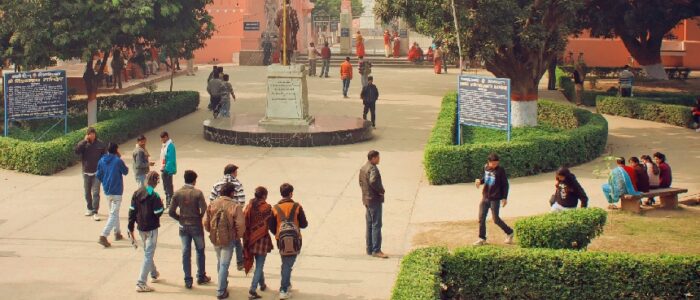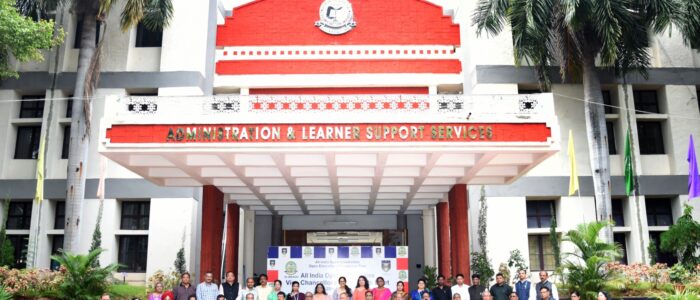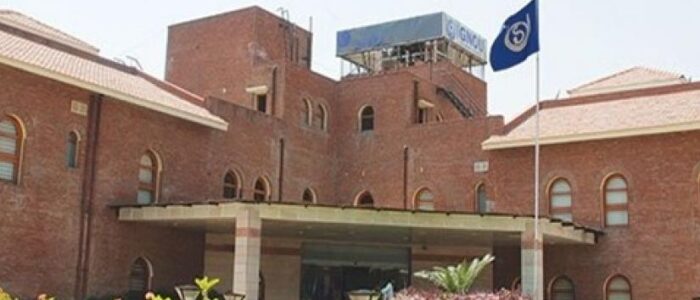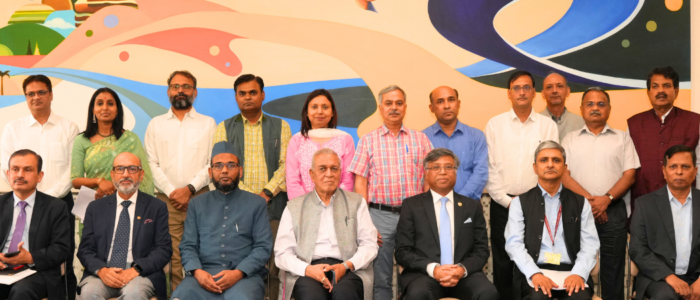First Open University of India
The University, initially known as India Open University, was set up on 26th August 1982 through an Act of the A.P. State Legislature (APOU Act 1982). Subsequently, the University was renamed as India Open University on 26 October, 1991 by the Government of India. The establishment of this University, the first of its kind in India, heralded an era of affirmative action on the part of the Government of India to provide opportunities of higher education to all sections of society to meet the changing individual and social needs. All the programmes offered by the University are recognised by the University Grants Commission, New Delhi. The motto of the University is “EDUCATION FOR ALL”. The new experiment in distance education led to the opening of the portals of higher education to a variety of potential students like housewives, farmers, skilled and unskilled labour, Jawans, Policemen, etc., who would otherwise not be able to acquire new skills and higher qualifications. The University is providing services to the student community through a wide network of 213 study centres spread across both Telangana & Andhra Pradesh States, including 23 regional co-ordination centres and 14 number of centres excluding for women students. Even prison inmates under life sentence also enroll themselves as students and pursue education through exclusive study centres at Central Prison – Cherlapally, Warangal, Rajahmundry, Visakhapatnam, Kadapa and Nellore. Looking back at the achievements, over three decades, the University has gained a prestigious and enviable position in society by:
- Providing access to large number of non-formal learners to the undergraduate programmes.
- Designing courses innovatively as Foundation Courses, Core Courses and Application Oriented Courses.
- Producing quality materials for interactive learning in Telugu, English and Urdu.
- Setting up a wide network of support services.
- Widening access to research, postgraduate and professional programmes through the distance mode.
- Giving hands on training for laboratory practice in Science and Technology Courses.
- Using multiple modes (Print and Electronic) for delivery of instruction.
The Campus: Located on a panoramic, elevated site of 53.63 acres in Jubilee Hills, the University has impressive buildings, green lawns and tree- lined roads that enhance the scenic beauty of the rocks all around. The campus has the Administrative and Support Services Block, Guest house, CSTD & GRADE building, Academic Branch, Science & Technology Multi- functional Labs (STML), EMR&RC and Library building, Study Material House, an extensive Open Plaza, a Conference Hall, Centre for Learner Services, Vice-Chancellor’s Lodge and an Auditorium named after Late Sri Bhavanam Venkatram, Former Chief Minister of Andhra Pradesh who was instrumental in estabilishing this University. The KU band Earth Station is located on the University Campus. There are laboratories in the Science Faculty for providing hands on training to Science Students of Physics, Chemistry, Geology, Botany, Zoology and Environmental Sciences. The Science Practicals are now conducted at the Science and Technology Multi- Functional Lab (STML) building on the campus. A new e-class room with built-in technological facilities has been added to the existing civil structures. The Narla Memorial Library is also housed in the Academic Building. A Multimedia Lab, Two Synergy Halls, a well-furnished Faculty Room and a Language Lab have also been set up in the Academic Building.
Facilities at the Campus:
- Library
- Reception (Information and Enquiry)
- Examination Enquiries Counter
- Student Services Counter
- U.G. Science Centre at STML Building
- SBI Dr. BRAOU Branch
- SBI (ATM) Centre
- Post Office
- A.P. Online Centre
- Telephone-cum-Xerox facility
- Bus service (at regular intervals)
- Canteen
- Wheelchair Facility for Handicapped Students
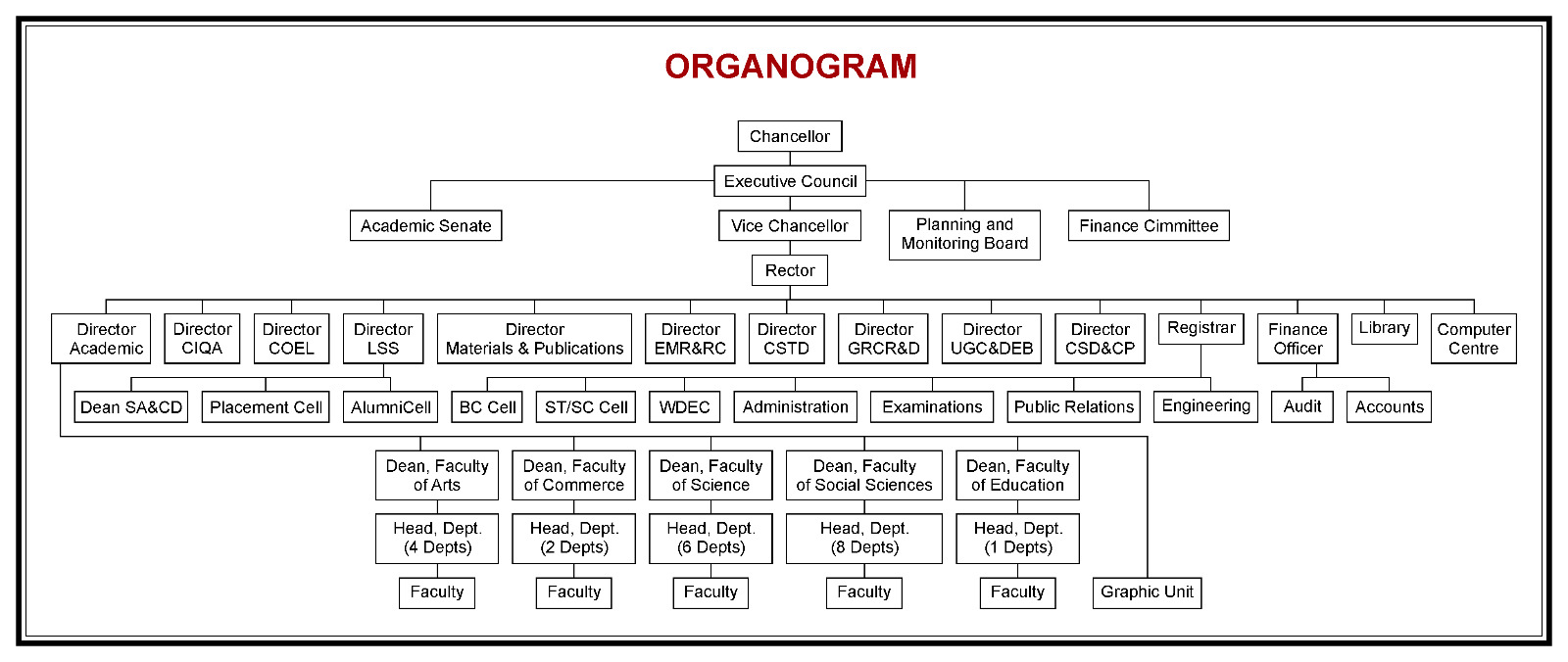
The Governor is the Chancellor of the University. The Executive Council, Academic Senate, Planning and Monitoring Board, Finance Committee are the important authorities of the University. The Vice-Chancellor, Registrar, Directors, Finance Officer, Deans of Faculties, Heads of Departments, Librarian, Controller of Examinations, Incharge, Computer Centre; Liaision Officer, Special Cell SC/ST, Incharge, Women’s Development and Extension Centre, University Engineer, Public Relations Officer are some of the functionaries of the University. The University is mainly structured around its Faculties (Academic Units) and functional units supported by administrative units. GRADE is established to promote System-based research and extension activities. The Academic Branch, Student Services Branch, Material Production Branch, Centre for Staff Training and Development, Audio-Visual Production and Research Centre, Administration Branch and Examination Branch, are the main functional units of the University. The Science Faculty functions from the STML Building. The Women’s Development and Extension Centre and Special Cell (SC/ST) give prioritized attention to special groups of learners and employees. The University has also established a Centre for Social Empowerment (CSE) as a project with support from DEC (IGNOU) and Centre for Internal Quality Assurance (CIQA). The personal collection of rare books of Sri V.R. Narla is housed in the “Narla Memorial Library” located in the Academic Branch. There are 41 Teachers and 466 administrative, technical and support staff working in different branches at the headquarters and study centres. In addition, there are 43 Consultants working in teaching departments and non-teaching divisions.
The Vision
social philosophy of education as a means of creating an egalitarian society is the vision of this University. Access to relevant quality education and training programmes for diverse sections of society with a focus on hitherto deprived sections at lower costs by using the modern technologies in teaching-learning processes as well as in administrative and support services is the goal of this University. The University programmes aim at making education and training instruments for living and for making a living.
The Mission
- Enrichment of on-going academic programmes.
- Competency building through education and training programmes.
- Research, innovation, training and networking for system development and staff development.
- Interactive individual based teaching learning processes.
- Reliable and credible student evaluation systems.
- Result oriented, accountable and transparent administrative and logistic support systems. and
OBJECTIVES OF THE UNIVERSITY TO :
- Provide educational opportunities to those students who could not take advantage of conventional institutions of higher learning.
- Provide equal educational opportunities for higher education through distance mode for a large segment of the population, including those in employment, women (including housewives) and adults who wish to upgrade their education or acquire knowledge and studies in various fields.
- Provide equal educational opportunities for higher education through distance mode for a large segment of the population, including those in employment, women (including housewives) and adults who wish to upgrade their education or acquire knowledge and studies in various fields.
- Provide flexibility with regard to eligibility for enrolment, age of entry, choice of courses, methods of learning, conduct of examinations and operation of the programmes.
- Provide complement the programmes of the existing Universities in the State in the field of higher learning so as to maintain the high standards on par with the best universities in the country.
- Provide promote integration within the State through its policies and programmes.
- Provide offer degree courses and non-degree certificate courses for the benefit of the working population in various fields and for those who wish to enrich their lives by studying subjects of cultural and aesthetic values.
- Provide make provision for research and for the advancement and dissemination of knowledge.
- Provide serve as a source of continuing education, consultancy and to provide equal access to knowledge and higher education.

